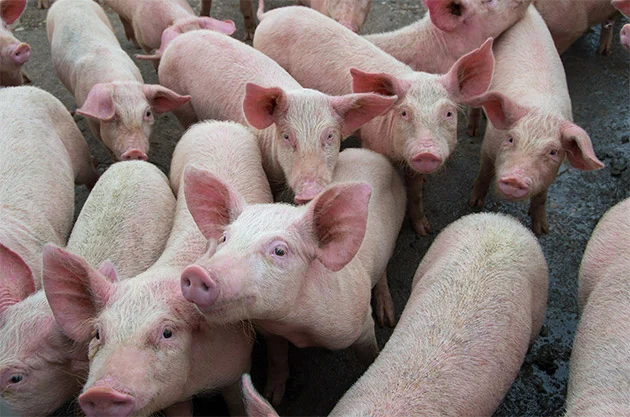Under the Prevention and Control of Infections and Contagious Disease in Animals Act of 2009, the Assam government designated Bishnupur-Nadirpar village of Hajo development block in Kamrup district as the epicentre of African Swine Fever (ASF).
Due of the high number of ASF cases in Assam, several restrictions have been imposed on all villages within a one-kilometre radius of the epicentre, declared as infected zones, and all villages within a 10-kilometre radius of the epicentre, declared as surveillance zones.
As a result, no pig or pig feed, nor pork or pork products, shall be taken out of or brought into the infected zone. No animal shall be transported from or out of the infected zone by any carrier of goods or animals.
Carriage of animals (pigs) on roads or railways through the declared infected zone is permitted as long as the animal is not unloaded anywhere within the zone until a sanitisation certificate is issued by the competent veterinary authority.
“No person will be allowed to take out any pig alive or dead, which is infected or suspected to be infected from African swine fever. Besides, no person will be allowed to carry any pig feed or breeding material or carcass, skin or other parts or products of such animals which has come in contact with any animal infected or suspected to be infected from African Swine Fever,” according to an official statement citing the restrictions.
“No person, organisation or institution shall hold any animal market, animal fair, animal exhibition and carry out any activity which involves grouping or gathering of pigs within the zone. The competent veterinary officer may suo moto or on an application made to him on this behalf, relax the provision in relation to other species of animals other than pigs if he is satisfied that in the public interest it is necessary to accord such relaxation,” it stated.
Furthermore, no one shall bring or attempt to bring pigs infected or suspected of being infected with fever into any market, fair, exhibition, or other public place.
“The chief veterinary officer or competent officer, if he thinks fit that an animal is infected with African Swine Fever and euthanasia has to be resorted to, for preventing the spread of the disease to other pigs of the area, will issue direction in writing for euthanasia of the animal in the infected zone and carcass to be disposed of by any manner to protect public health and hygiene,” it said.
All municipal, panchayat, or village officials, as well as officials from the panchayat and rural departments, dairy development, revenue, and agriculture departments, must assist the veterinary officer and veterinarian in carrying out their duties or exercising their powers under the Act.
ASF was discovered in Assam for the first time in February 2020. Humans cannot catch the disease from pigs. Since 2020, over 40,000 pigs in Assam have died from African Swine Fever, according to official data. All restrictions mentioned in the infected zone will apply in the “Surveillance Zone,” with the exception of Clause 10, which states that animals will not be euthanized.
“All the pigs under the surveillance zone will be subject to intensive surveillance, which will include clinical surveillance, virological surveillance and serological surveillance. Intensified surveillance on domestic pig population adjacent to forest areas will be carried out in consultation with the forest department,” as per the statement.

